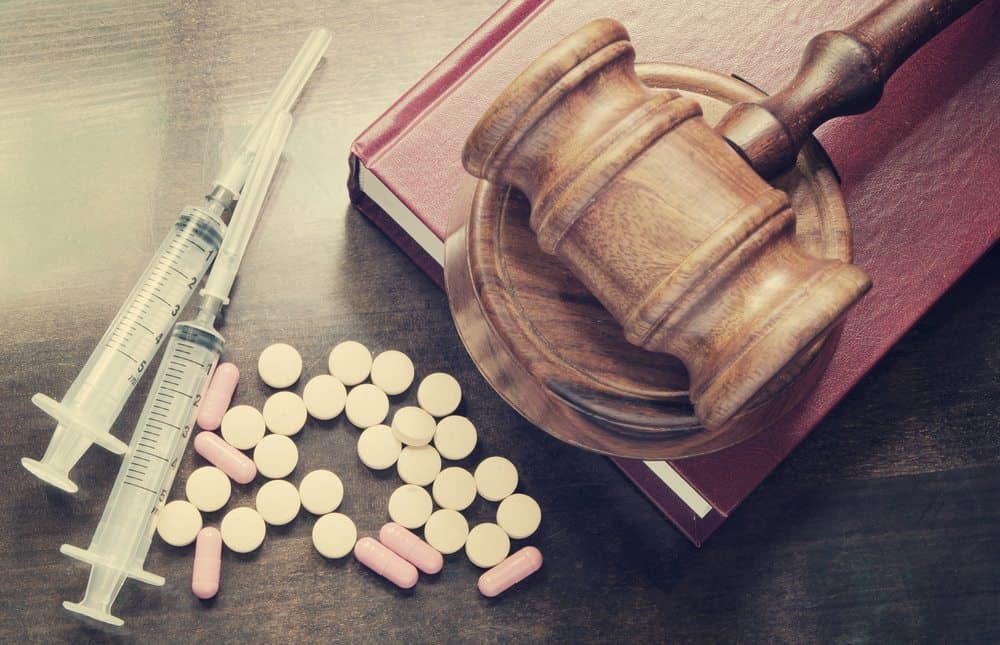The Controlled Drugs and Substances Act (CDSA) governs drug possession. Only drugs that are listed in the CDSA as controlled substances may be illegal. The CDSA contains five schedules of controlled substances which are illegal to possess in certain situations. Although cannabis is no longer a controlled substance, the possession of it is restricted in certain circumstances. The following chart shows some examples of which drugs are in each schedule:
| Schedule I | Heroin, cocaine, fentanyl, methamphetamines |
| Schedule II | Formely cannabis; currently synthetic cannabinoids |
| Schedule III | LSD, Ritalin, Quaalude, Harmaline, Magic Mushrooms, Mescaline |
| Schedule IV | Barbiturates, Benzodiazepines, Anabolic Steroids |
| Schedule V | None at the time of writing |
Drug Possession
It is illegal to possess any substance included in Schedules I, II, and III unless authorized by regulation. The Crown must always prove that the substance is in fact a controlled substance. A sample of the seized drug will be sent to Health Canada in order to be tested. A Certificate of Analysis will be provided with the results. If the police seize suspected fentanyl and the test comes back as caffeine then the substance is not a controlled substance. Of course there is the possibility that the Crown may send a second sample of the suspected fentanyl for testing.
If the suspected drug tests as a controlled substance, the Crown must still prove that the accused was in possession of that drug. In order to be found in possession the Crown must prove two things: knowledge and control.
The Crown must prove that the accused knew they were in possession of a controlled substance. If someone borrows a friend’s backpack they may not know there are drugs in them. Alternatively they may think that a bag of cocaine is actually baby powder. However it is not a defence to think that you had a different drug than the one you were found with.
There are three different ways that someone can exercise control over an item. Personal possession is the most straightforward. It is when the accused has actual custody of the drugs. Constructive possession occurs in a situation where the drugs are not in the custody of the accused but they are still exercising control over them. For example someone could have constructive possession of drugs found in a safe in their bedroom. Finally joint possession occurs when multiple people have knowledge and exercise control over the drugs.
Exemption – Medical Emergency
The Good Samaritan Drug Overdose Act came into effect on May 4, 2017. It provides protection for those in possession of drugs during a medical emergency (ie overdose). The Act prohibits laying drug possession charges for anyone at the scene of an overdose. It also prohibits laying charges for any breaches of bail or probation due to drug possession. However it will not prohibit the laying of drug trafficking charges.
Drug Possession for the Purpose of Trafficking
It is illegal to traffic any controlled substance found in Schedules I-V. “Traffic” is defined in section 2 of the CDSA. It means to sell, administer, give, transfer, transport, send, or deliver the substance. Traffic also means to sell an authorization to obtain the substance. Offering to do any of the above is also trafficking. While it may be legal to possess Schedule IV substances such as anabolic steroids, it is illegal to traffic in them.
Since it can be difficult to catch someone in the act of trafficking, it is also illegal to possess a controlled substance for the purpose of trafficking. The Crown must still prove either personal possession, constructive possession, or joint possession. There must also be evidence that the drug possession was for the purpose of trafficking. Evidence can include a large quantity, packaging, debt lists, and seized cash. Usually the Crown will need an expert to give their opinion on what the drugs were for.
Importing and Exporting
It is illegal to import and export any controlled substances listed in Schedules I-VI. Schedule VI substances are precursors used to produce drugs. It is also illegal to possess any of those substances for the purpose of exporting.
Drug Lawyer
Although drug possession may seem like a victimless crime, a conviction can affect your ability to get certain jobs and travel to other countries. Trafficking, important, and exportation can carry up to life imprisonment. It is important to hire a lawyer with experience in drug possession charges. If you are charged with a drug offence give Drexler Law a call at (519) 804-1799 or inquire by email for a free consultation.

